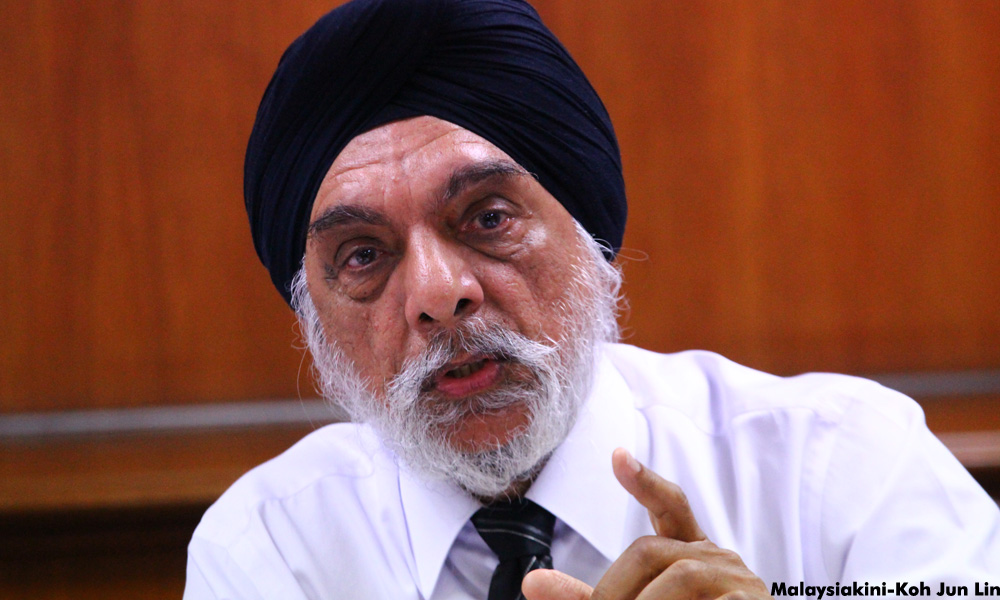Kelantan sodomy law unconstitutional, say groups
The Malaysian Consultative Council of Buddhism, Christianity, Hinduism, Sikhism and Taoism (MCCBCHST) has urged the Kelantan government to review its recently enforced Syariah criminal law, which includes punishments against homosexual activities and a slew of other offences.
Citing legal precedent, the group’s president Jagir Singh pointed out that the power to legislate criminal matters rests with Parliament.
“The Kelantan government should therefore review its Syariah Criminal Code (I) Enactment 2019 and bring it into line with the Federal Court decision above, so as to avoid conflict with the Federal Constitution,” he said in a statement yesterday.
He was referring to the Federal Court decision in February in the case brought by Iki Putra Mubarak against the Selangor Syariah law criminalising “unnatural sex”.
The court held that since both the federal and state legislatures have enacted laws on the same criminal law matter, both laws cannot co-exist.
Therefore, the state law is in contravention of the Federal Constitution provision stating that state legislatures have no power to make law on matters under federal jurisdiction.
“In view of the Federal Court decision in Iki's case, the offence of sodomy is already an offence under the Penal Code - a federal law - and thus the subject matter of 'sodomy' and other homosexual offences contained in the Syariah Criminal Code (I) Enactment will be void,” said Jagir.

The Kelantan Syariah Criminal Code (I) Enactment came into force on Nov 1 and criminalised 24 new offences, including sorcery, falsely claiming to be a prophet, attempting to renounce Islam, necrophilia, bestiality, having tattoos, disobeying parents, gambling, and under-weighing goods.
The law replaced the Syariah Criminal Code Enactment (Kelantan) 1985. Its penalties vary according to the offence, the maximum being a jail term of three years, a fine of RM5,000 and six strokes of the cane.
New law projects 'obscure' view of Islam - SIS
Meanwhile, Sisters in Islam (SIS) expressed similar criticism on the validity of the new law, as well as broader concerns about the law.
It said it projects an “obscure” view of Islam and suppresses critical thought.
“We also find these developments concerning and dangerous as they violate fundamental principles of democracy by suppressing critical thought and expression through arbitrary provisions and punishing those who do not toe the line.
“It does not reflect an inclusive, progressive and tolerant Islam but merely showcasing Islam as a punitive religion as very few Muslims have the courage to question, challenge or even discuss matters of religion, even when they doubt teachings that appear unjust and incongruous to changing times and circumstances,” the group added.
SIS also questioned Kelantan Menteri Besar Ahmad Yakob’s contention that the new law is aimed to bring offenders back to the “right path of Islam and not merely punish them”.

“What does restorative and retributive actually mean in this context?
“While there is mention of conducting social services for youth offenders under the supervision of imams in mosques, what is the understanding of restoration and retribution for actions that are deemed crimes under this Syariah Criminal Code and how will this be achieved in the looming tabling of Act 355?” it said.
Act 355 refers to the Syariah Courts (Criminal Jurisdiction) Act 1965. PAS has been lobbying for amendments to the law that would allow Syariah courts to mete out stiffer penalties up to 30 years' jail, RM100,000 fine, and 100 strokes of the cane.
The current limit under Act 355 is three years’ jail, an RM5,000 fine, and six strokes of the cane.
The proposed amendment is seen as PAS paving the way towards implementing hudud law in Kelantan and Terengganu. - Mkini
✍ Credit given to the original owner of this post : ☕ Malaysians Must Know the TRUTH
🌐 Hit This Link To Find Out More On Their Articles...🏄🏻♀️ Enjoy Surfing!




















Post a Comment